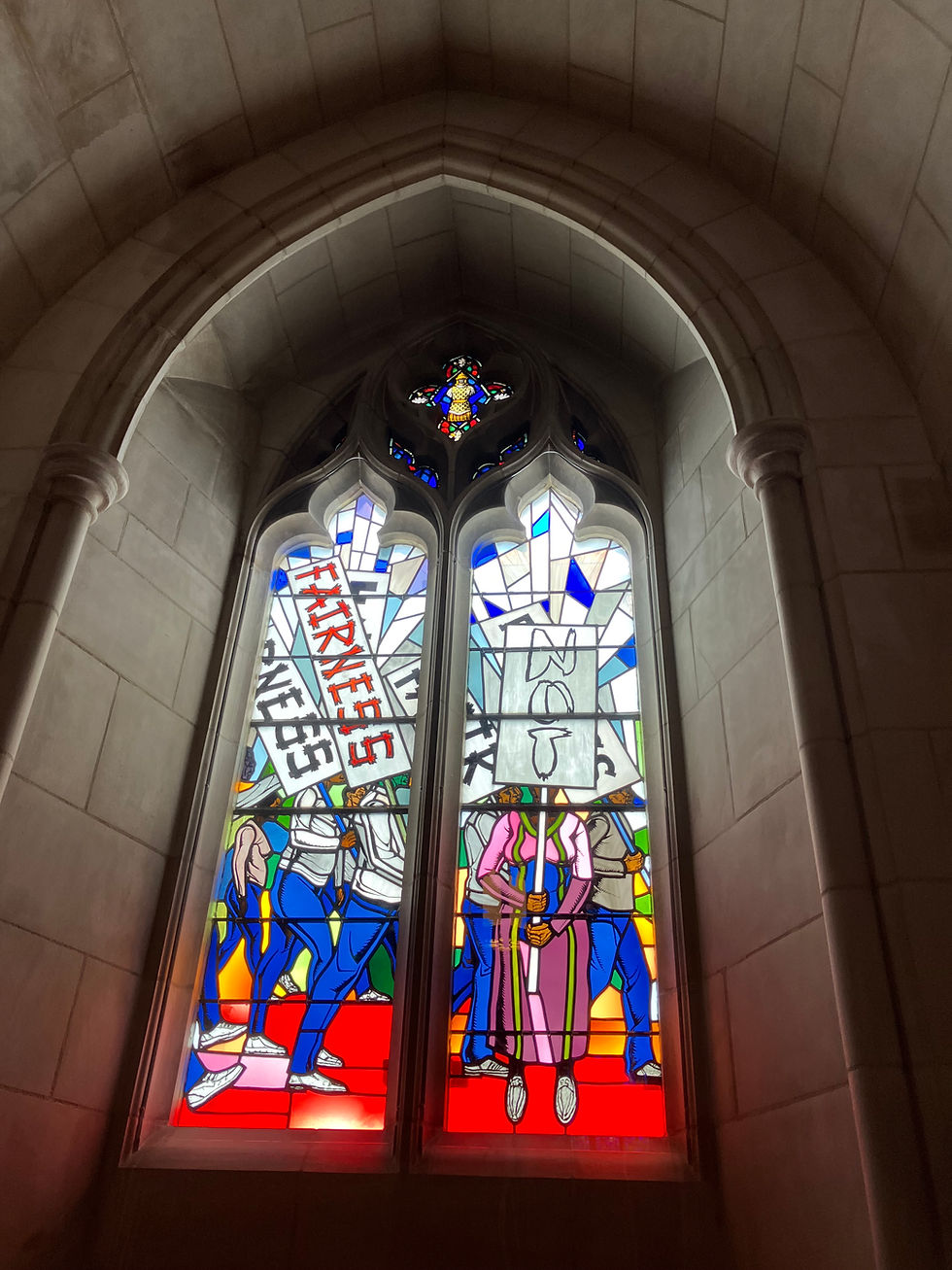Do you remember where you were 4 years ago?
- Susan Cartmell
- Mar 13, 2024
- 3 min read

Do you remember where you were four years ago today? March 13, 2024 - is exactly four years since the COVID 19 pandemic changed life as we knew it around the world. It has never completely returned to normal.
What a confusing time! No one understood what a corona virus was. No one knew how it spread. No one knew how long this shutdown would last. Most people estimated it would last a couple of weeks. No one imagined how quiet the world might become or what it would feel like to spend so much time sequestered in our homes. None of us could imagine lives without air travel, or school or worship. It was unimaginable.
We humans have convenient amnesia where hard experiences are concerned. Four years out we wonder, Did we really go through that? Did we wash our groceries? Did planes, trains, and traffic of every kind really stop? Did offices close and cities grow so quiet that wild animals trusted that the streets were safe to explore? Did that happen?
Though it is hard to think about, we live with COVID 19 still. The death toll has diminished, but people still get sick. The World Health Organization estimates that deaths from this pandemic exceed 3.4 million people worldwide. 50% of office space in New York City is still empty. We think differently about our lives. The pandemic changed our ambitions about how we live – where we want to work, and dwell, and how we evaluate success.
Peggy O’Connor and I have written about the effects of this pandemic in a book entitled, The Perpetual Pivot: Ministry in the Pandemic and Beyond. One of our goals in launching this book is we hope to start a conversation about what we are learning from the pandemic. We believe this experience has had a lot to teach us, more than we realize. But as we take the book to churches and libraries, give talks and take questions we keep hearing people say: “I’d forgotten what we went through.” It’s a very human impulse to want to move on. Its normal to want to close this pandemic chapter and get back to normal. But hard as the pandemic shutdown was, some of its lessons were important. In our book we point to some of the things faith leaders learned. in a profession geared toward bringing people together in cramped spaces, suddenly clergy had to re-imagine everything they did. But the faith leaders who were flexible and discerning turned this hard experience into a creative time when their churches flourished. They turned a trek through the pandemic wilderness into an opportunity to build community and deepen faith. Here some things the clergy learned in this pandemic:
Churches that changed with the times were more resilient than those that held on to preserve their traditions.
Congregations that served their whole community expanded their horizons through feeding programs, clothing giveaways, and actions for racial justice.
Churches that listened to the needs of their people, grew in spirit and numbers.

Everyone we spoke to – young and older – learned to streamline meetings by using a program new to us four years ago, but indispensable now, Zoom.
We are still learning some of the lessons of this pandemic. As we mark this milestone – 4 years hence, let’s resolve to keep searching for new insights. After the Spanish flu, one century ago – people just tried to put the whole experience behind them, and rush ahead into Roaring Twenties, the flapper era. But you have to wonder if that was a waste of so much hard-won wisdom.





I bought your book a while ago, but decided to start reading it on the anniversary of the lockdown. It’s inspiring! Thank you. I hope it reaches a wide audience that’s thoughtfully considering what we experienced and learned these last four years.